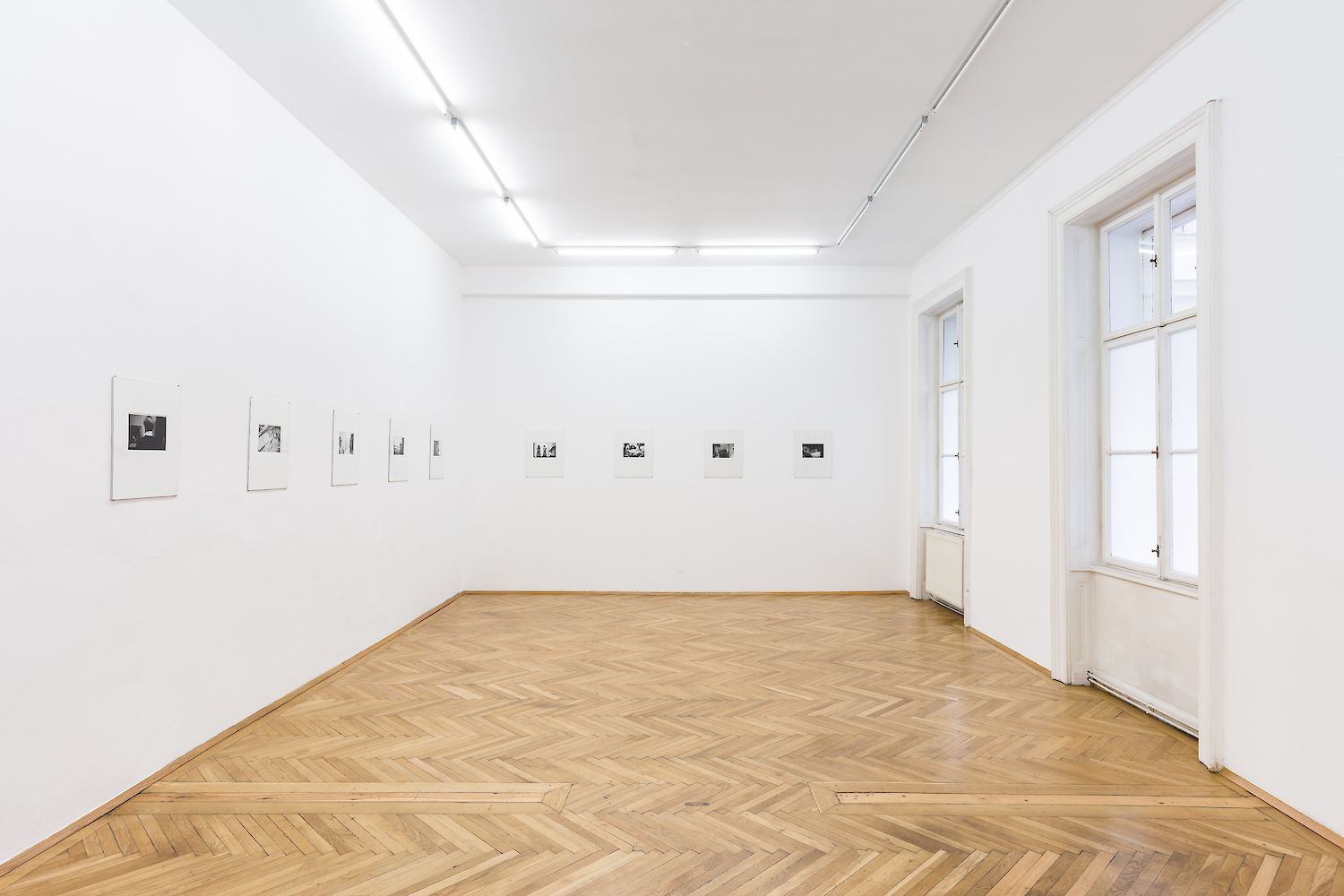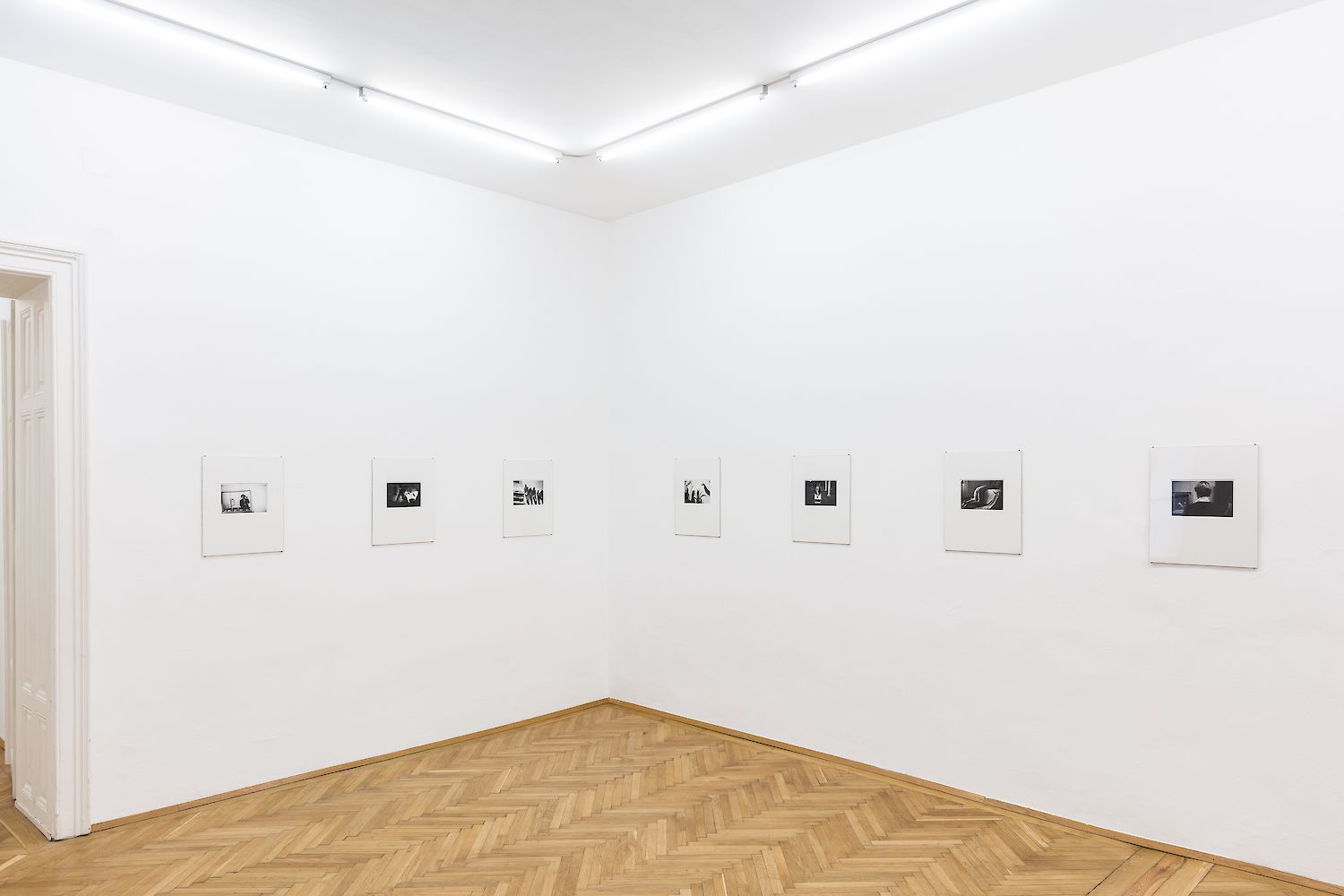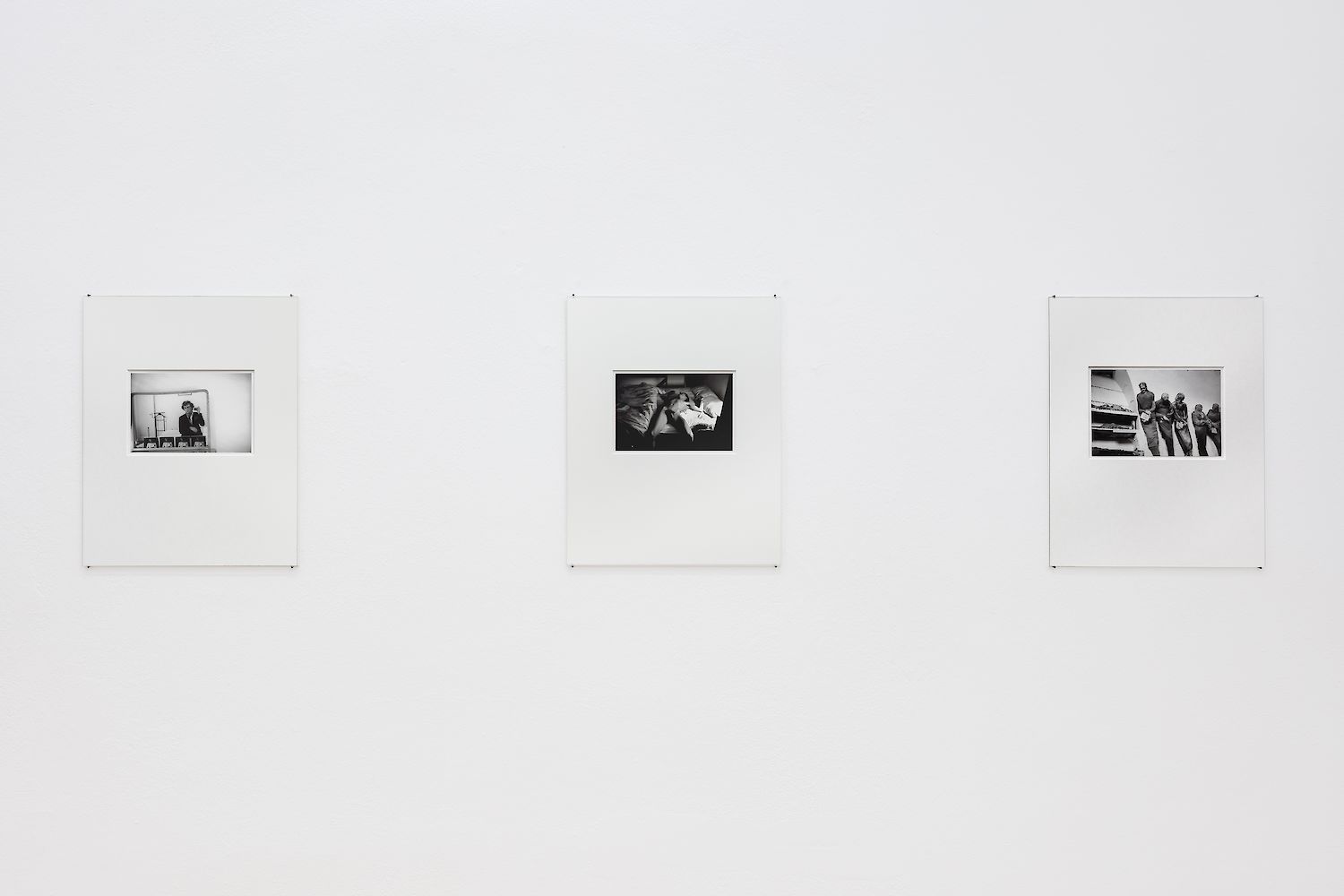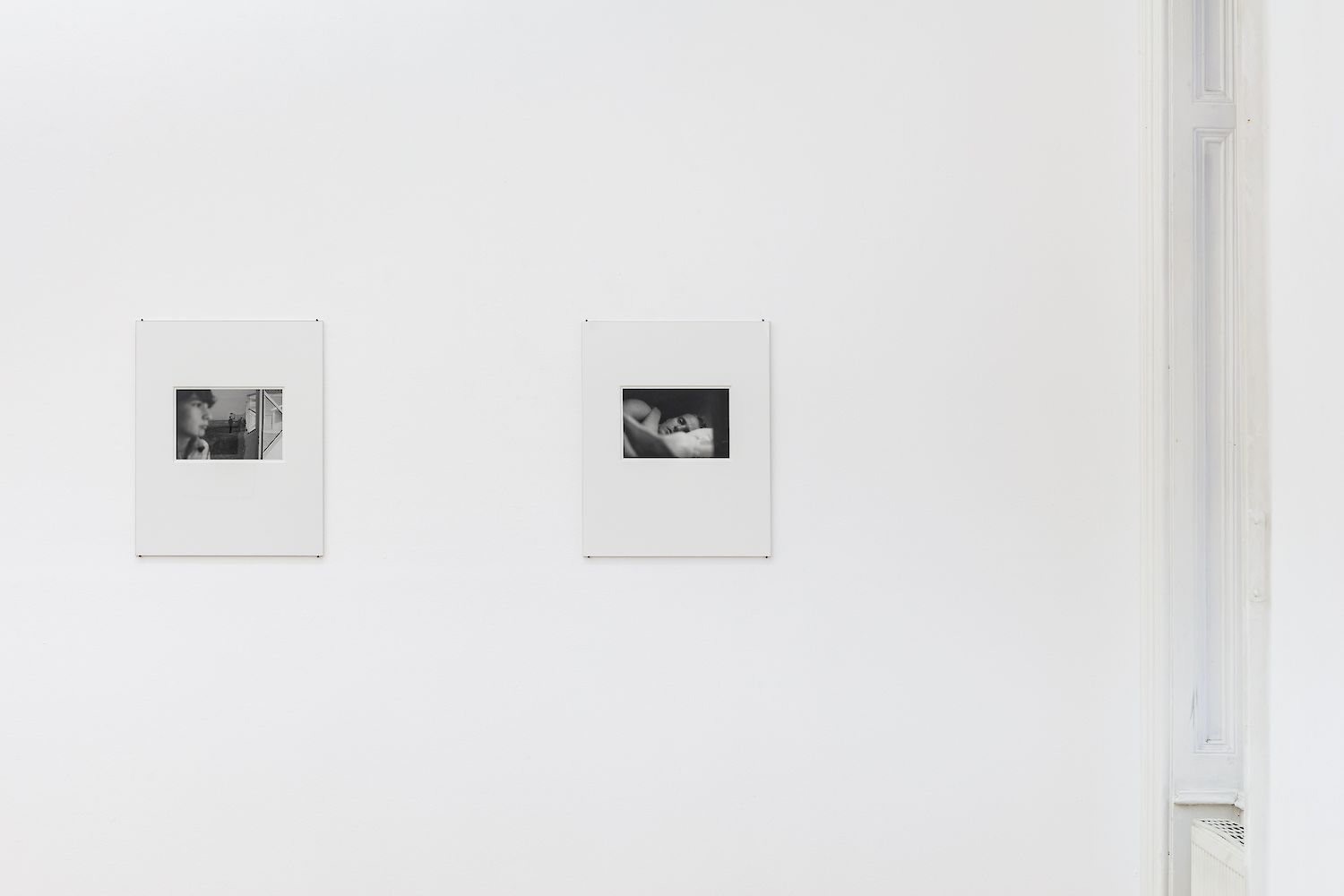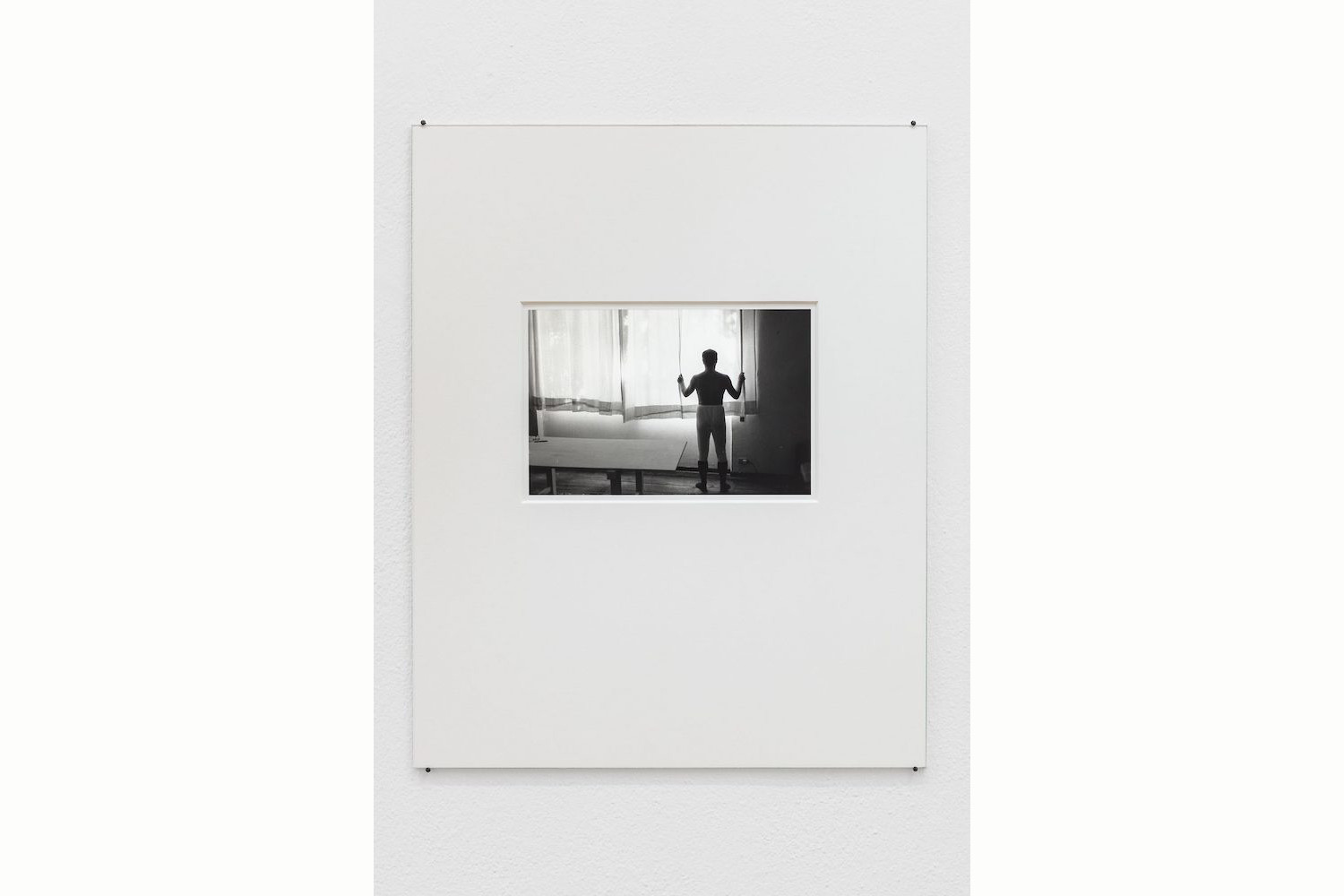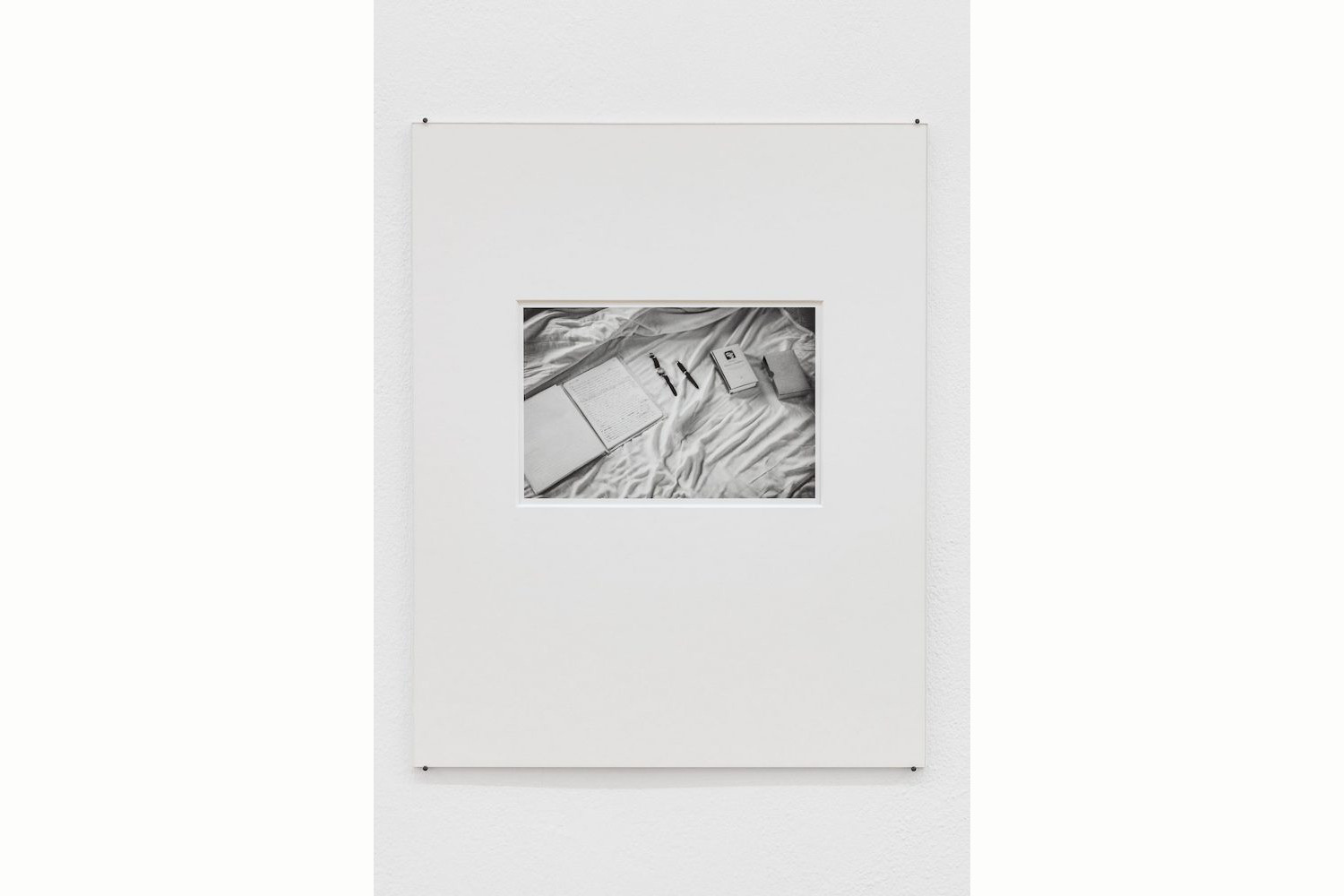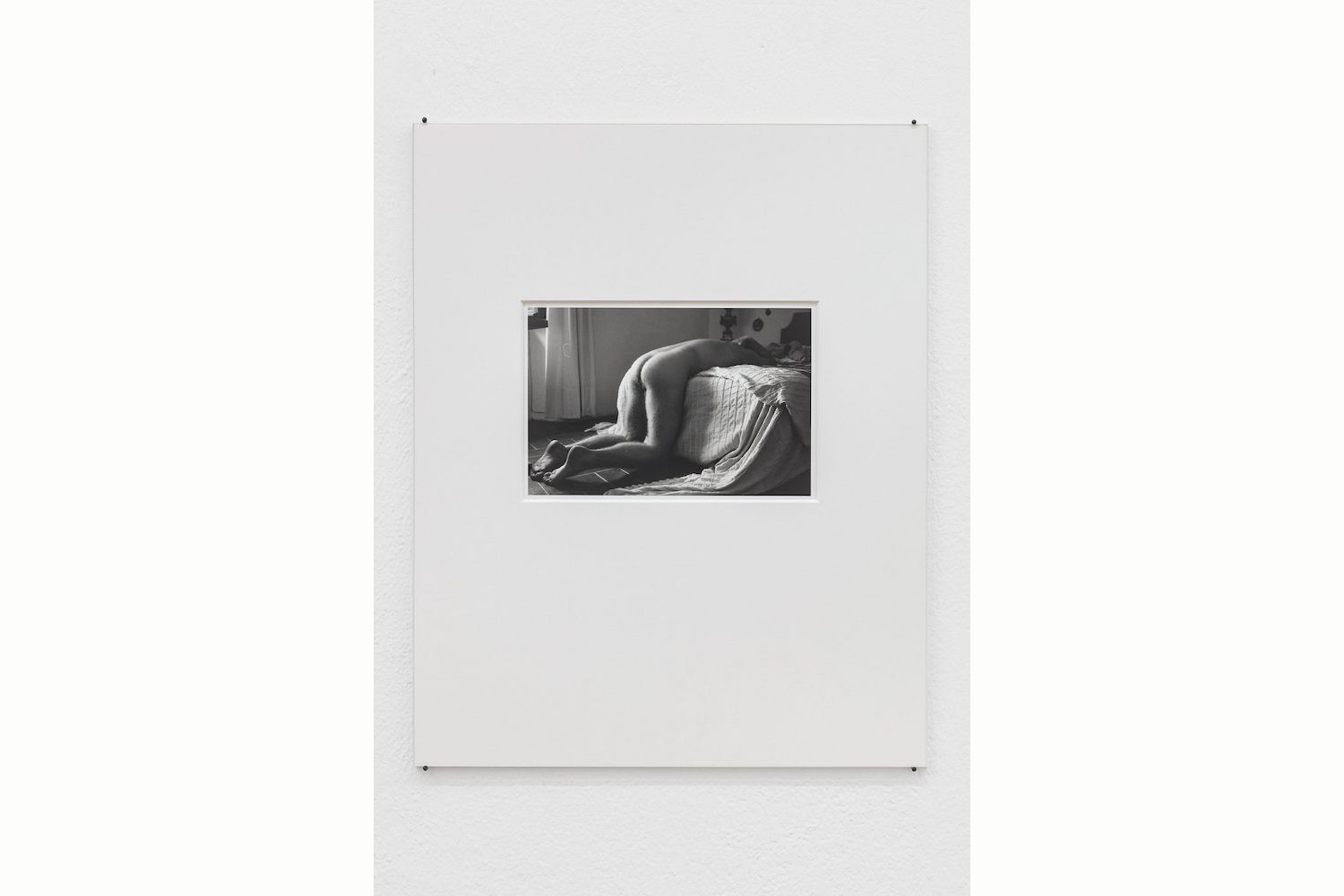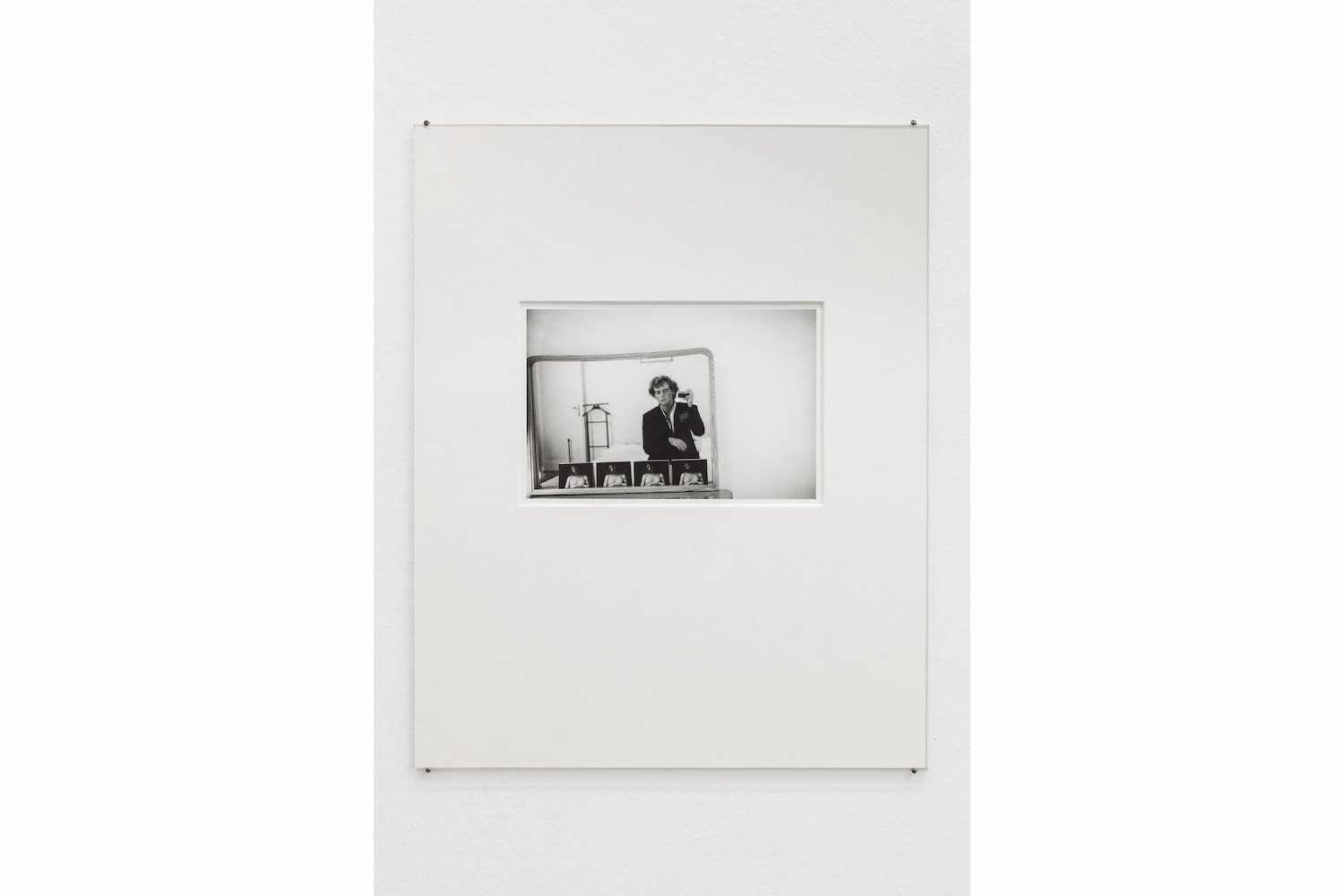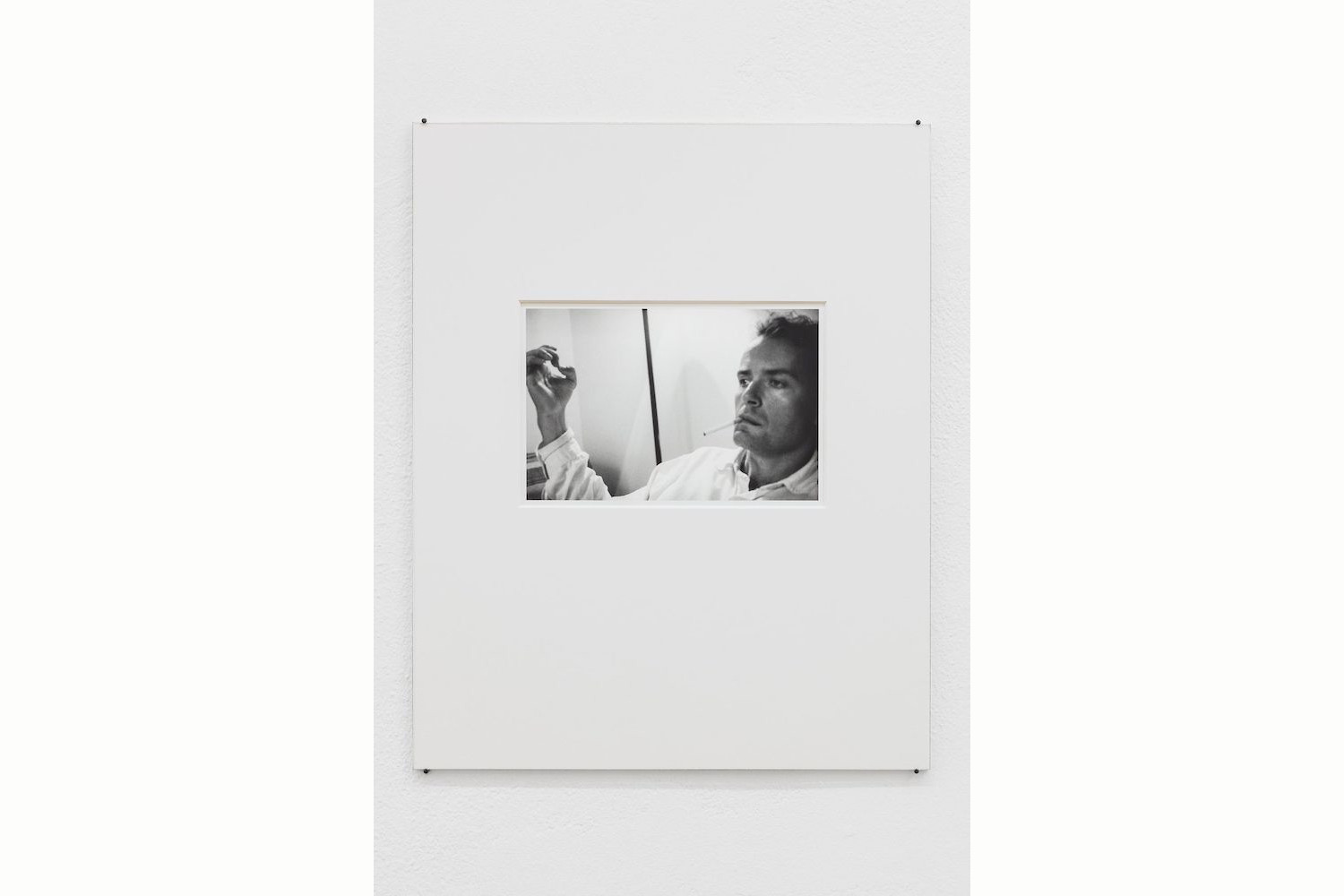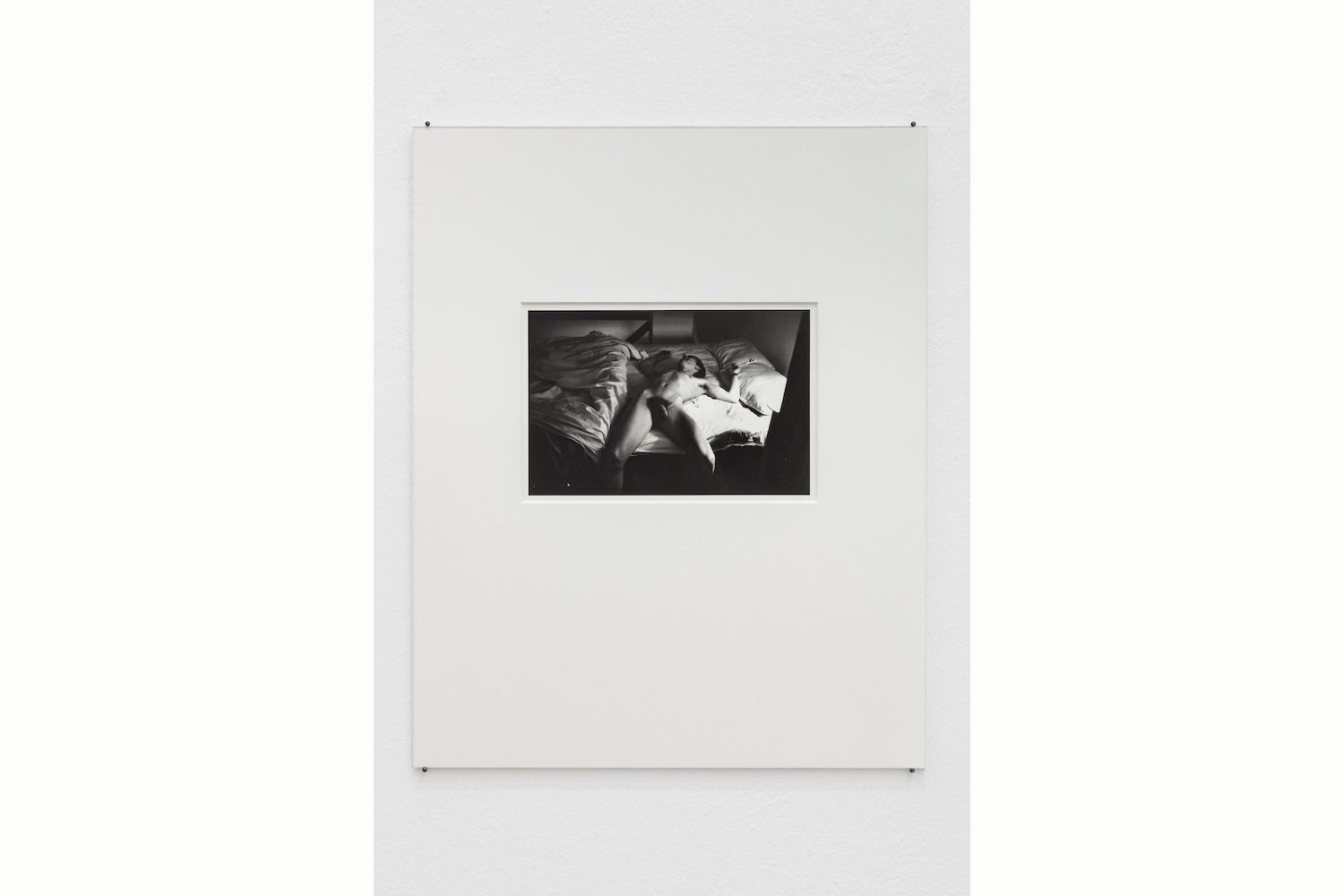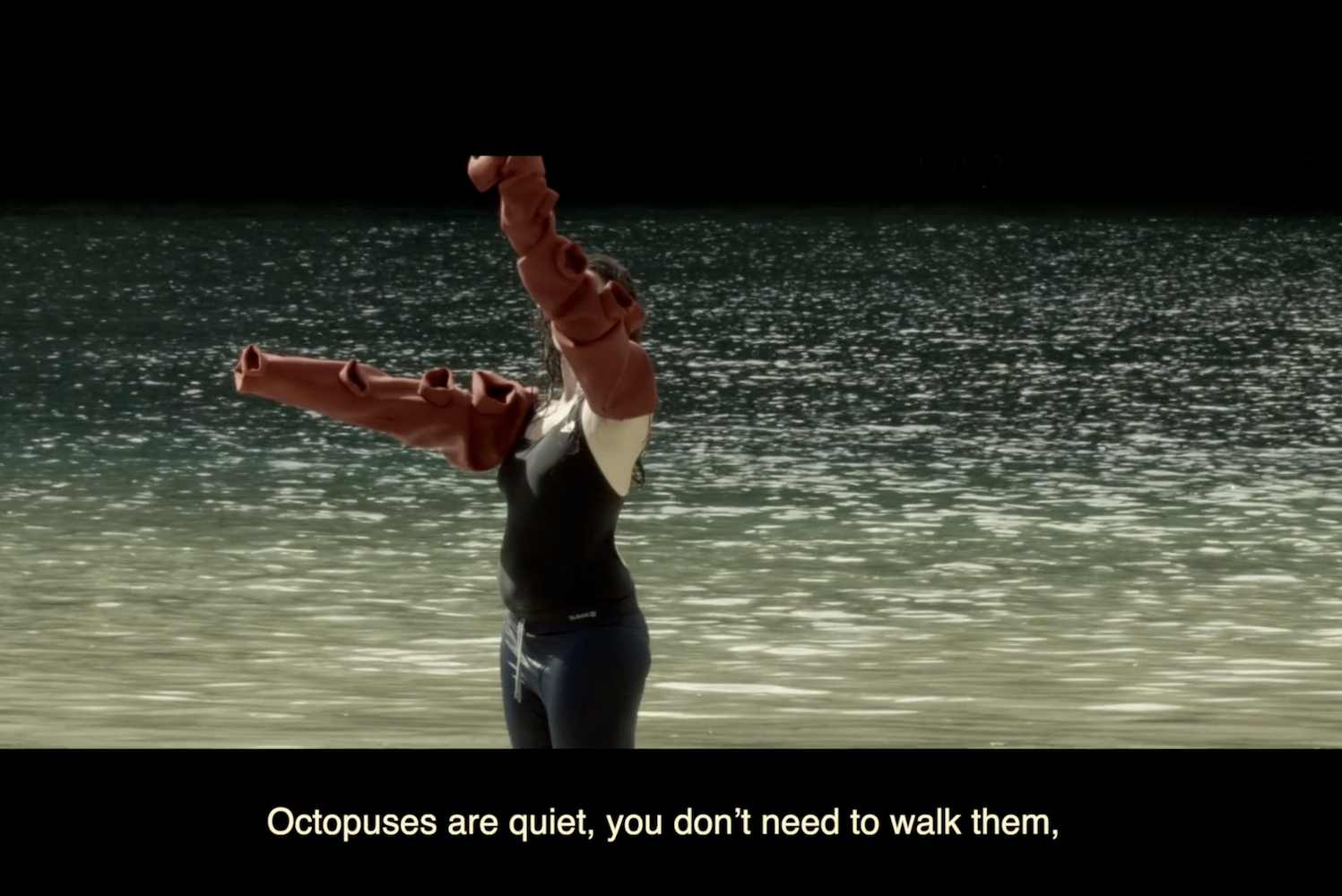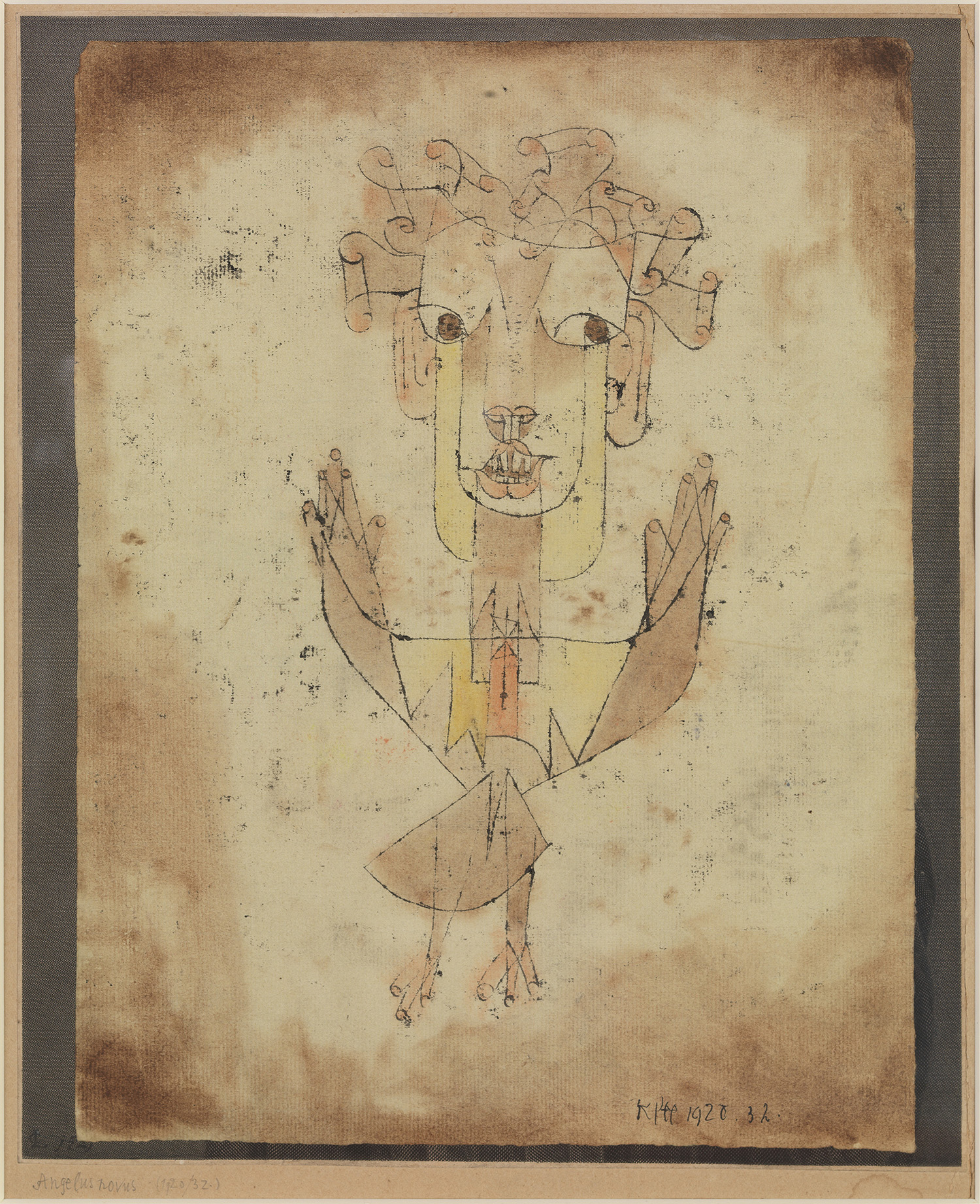Hervé Guibert’s incalculable photography and writing is quietly affected, but also sincere, as if stillness were the only way out, living somewhere between the ennui of daily life and restrained disobedience. A quiet revolution, buried deep in stark, luminescent images of a disaster that has already happened. Central to his œuvre is a keen awareness of lack, of castration, something gone or going; a manque-à-être, an aesthetic of disbeing that humanises, spotlighting our loathing of the Other, of things we don’t understand. His static- altering poetics occupy a quasi-judicial reality, between temporality and the stasis of trying to remember things incorrectly. A dreamlike drift. An asymptote approaching zero for infinity. 1
FELIX GAUDLITZ is pleased to present “… of lovers, time, and death”, an exhibition of 15 vintage prints by French writer and photographer Hervé Guibert (1955–1991), organized together with Attilia Fattori Franchini. A publication with contributions by Estelle Hoy, Drew Sawyer, Attilia Fattori Franchini, and the text Enquête autour d’un portrait (sur Balthus) by Hervé Guibert (1983), translated for the first time in English, will be published on the occasion of the exhibition in November. The book will be published by saxpublishers, designed by FONDAZIONE Europa and co-edited by Attilia Fattori Franchini and Felix Gaudlitz.
Hervé Guibert novelist, journalist, photographer and activist.
Pioneer of autofiction and interested in the possibilities of self-representation-literary and photographic-Hervé Guibert published more than twenty-five books before dying of AIDS in 1991 at the age of 36. His experimental prose is defined by violence and desire, lack and decay contaminated by the writing of Jean Genet and Thomas Bernhard amongst others. Guibert used photography as a tool to embrace transience, language to create fiction; fiction he performed and lived. He inaugurated the photography column in Le Monde (1977–1985), his criticism, highly influenced by Roland Barthes, is marked by fleeting, melancholic, and intimate moments. His book L’Image fantôme (Ghost Image, 1981), part memoir, part analysis of the act of taking pictures, is a collection of texts written in first person, caught in a dance of permanence and disappearance. Guibert took pictures of his friends, lovers, and family members composed in a meticulous and powerful way as if characters of a diaristic novel. Subjects such as Gina Lollobrigida, his friend and collaborator Hans-Georg Berger, or his lover Vincent are portrayed almost sacrally revealing the invisible tension between observer and observed. We are haunted by his gaze in the many self-portraits he took, through mirrors, strangely holding the camera or of his own shadow projected on a wall. He also photographed the ever varying scene of his writing desk, including his typewriter, his manuscript pages, his diary and open books, in an exploration of the possibilities of photography.
In his final years after being diagnosed with AIDS, Guibert took on an active role challenging and transforming perspectives on the disease, sexuality, and self-representation. Guibert’s most famous novel À l ’ami qui ne m’a pas sauvé la vie (To the Friend Who Did Not Save My Life, 1990) written in the form of diary-like entries, chronicles the last years of the life of his friend and mentor, Michel Foucault and of his own. Underlining the continuum between the processes of dying and writing, Guibert pushes the physical body and the body of writing as interconnected texts under erasure.

